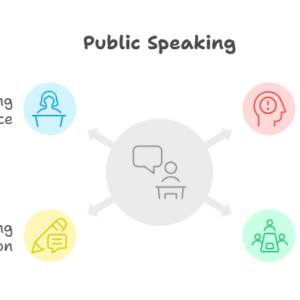AI Leadership Mastery: Shaping the Future with Ethics and Innovation
R250
This course empowers business leaders, managers, and professionals to effectively lead AI-driven transformations within their organizations. It equips participants with the tools, strategies, and ethical frameworks needed to harness the power of AI responsibly while fostering innovation, building stakeholder trust, and ensuring long-term organizational success.
Description
AI Leadership Mastery: Shaping the Future with Ethics and Innovation

Purpose
This course empowers business leaders, managers, and professionals to effectively lead AI-driven transformations within their organizations. It equips participants with the tools, strategies, and ethical frameworks needed to harness the power of AI responsibly while fostering innovation, building stakeholder trust, and ensuring long-term organizational success.
Rationale
The rapid adoption of artificial intelligence is reshaping industries, creating both unprecedented opportunities and complex challenges. Leaders often lack the knowledge and confidence to navigate the technical, ethical, and operational dimensions of AI. This course addresses this gap by providing a comprehensive, human-centered framework for responsible AI leadership, enabling participants to:
- Drive AI adoption with ethical integrity.
- Build trust and transparency with stakeholders.
- Enhance organizational agility.
- Balance innovation with accountability.
By completing this course, learners will develop the mindset, skills, and strategies necessary to lead AI initiatives that are innovative, inclusive, and aligned with organizational goals.
Target Audience
This course is designed for:
- Business leaders and executives seeking to integrate AI into strategic decision-making.
- Mid-level managers tasked with leading AI implementation projects.
- HR and organizational development professionals focusing on workforce transformation in the AI era.
- Ethics and compliance officers managing the ethical dimensions of AI adoption.
- AI product managers and consultants aiming to align AI solutions with human-centric values.
No prior technical expertise in AI is required, making the course accessible to leaders from diverse professional backgrounds.
Course Layout
Module 1: The Mindset for AI Leadership
Purpose: To cultivate a growth mindset that embraces change, fosters innovation, and positions AI as a collaborative tool for human potential.
Key Topics Covered:
- Fixed vs. Growth Mindset: Overcoming resistance to AI adoption.
- The role of adaptability and continuous learning in AI leadership.
- Practical strategies for fostering a culture of experimentation and resilience.
- Self-assessment: Identifying and overcoming mindset barriers.
Module 2: Empathy and Stakeholder Trust in AI
Purpose: To equip leaders with the emotional intelligence and tools needed to understand and address stakeholder concerns, fostering trust and collaboration.
Key Topics Covered:
- Understanding stakeholder fears: Job displacement, privacy, and fairness.
- Empathy mapping: A tool for human-centered AI implementation.
- Techniques for active listening and inclusive communication.
- Building transparency through explainable AI (XAI) and trust-building frameworks.
Module 3: Ethical AI: Navigating the Moral Compass
Purpose: To empower leaders to integrate ethical decision-making into AI projects, ensuring responsible and sustainable innovation.
Key Topics Covered:
- Ethical frameworks: EU AI Act, GDPR, and global standards.
- Bias mitigation strategies: Addressing data and algorithmic biases.
- Human-in-the-loop (HITL): Balancing automation with human oversight.
- Case studies: Successful ethical AI implementations and failures.
Module 4: Risk Mitigation in AI Projects
Purpose: To provide leaders with practical risk management skills to anticipate, address, and mitigate risks in AI implementation.
Key Topics Covered:
- Identifying technical, ethical, and operational risks in AI.
- The NIST AI Risk Management Framework: A structured approach.
- Contingency planning and crisis communication strategies.
- Interactive exercise: Building a comprehensive AI risk register.
Module 5: Agile Execution for AI Transformation
Purpose: To develop the skills to lead AI implementation projects with agility, accountability, and a focus on delivering measurable outcomes.
Key Topics Covered:
- Agile principles for AI project management.
- Sprint cycles and the Minimum Viable Product (MVP) approach.
- Overcoming execution barriers: Talent gaps, legacy systems, and stakeholder resistance.
- Practical frameworks for adaptive leadership and iterative learning.
Module 6: Driving AI Transformation with Measurable Impact
Purpose: To enable leaders to align AI initiatives with organizational goals, measure success, and communicate results effectively.
Key Topics Covered:
- Defining success metrics: Business impact, ROI, and ethical alignment.
- Translating technical outcomes into strategic value for stakeholders.
- Continuous learning: Scaling AI solutions and sustaining momentum.
- Capstone project: Drafting a 90-day AI transformation plan.
Conclusion
This course equips participants with the mindset, tools, and strategies to lead AI initiatives that are innovative, ethical, and impactful. By combining practical frameworks with real-world case studies, learners will emerge as confident AI leaders capable of navigating the complexities of AI adoption while fostering trust, collaboration, and organizational growth.






